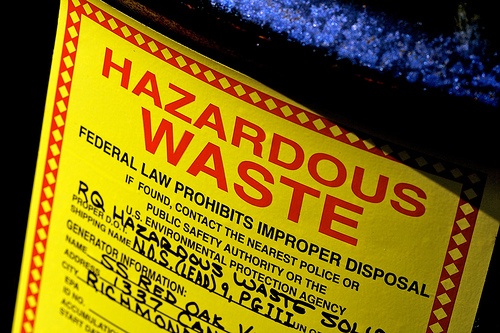In today's rapidly evolving regulatory environment, meeting compliance obligations is more than a legal requirement—it's a business imperative. For organizations committed to excellence in Environmental, Health, and Safety (EHS) management, a well-designed and agile EHS audit program is a vital tool. Beyond simply checking boxes, it helps identify risks, protect workers, ensure environmental stewardship, and drive continuous improvement.
This blog explores the key elements of a successful EHS audit program, the critical role of the Audit Program Manager, and how to effectively integrate emerging regulatory requirements to stay ahead of change.
Read More
Tags:
Environment,
Environmental Health and Safety,
EHS Technology,
AI,
Artifical Intelligence,
EHS Innovation,
EHS Compliance,
PFAS regulations,
EHS audit program
Canada has established a goal of zero plastic waste by 2030, and has established a variety of regulatory and informational programs to pursue that goal. As part of these effort, Environment and Climate Change Canada (ECCC) has established the Federal Plastics Registry (FPR), along with accompanying regulations requiring reporting by targeted producers of plastic packaging, electronic and electrical equipment, and single-use or disposable products. These entities’ reporting requirements expand annually in three “phases,” beginning with Phase 1 reports starting with selected 2024 data due by September 29, 2025. (I wrote about ECCC’s proposal to establish the FPR, HERE). The remainder of this note summarizes Phase 1 requirements and identifies Phase 2-4 targets.
Read More
Tags:
Environmental risks,
Environmental,
climate change,
Environmental Projects,
Environment,
Environmental Policy,
Climate,
plastics,
Environmental Compliance,
Plastic Waste
Since re-entering office, President Trump has moved quickly to reverse many of President Biden’s environmental policies; actions include a flurry of Executive Orders (EOs) that reverse or cancel his predecessors EO-based and other environmental initiatives. The remainder of this note summarizes changes presented in the initial EOs.
Read More
Tags:
Environmental,
Environment,
Environmental Policy,
Joe Biden,
Policy Change,
Trump Administration
During 2024, at least five states considered legislation to enact “Climate Superfund” laws targeting fossil fuel companies, applying “polluter pays” principles enshrined in the US federal Superfund law (Comprehensive Environmental Response, Compensation and Liability Act (CERCLA of 1980) and its many state counterparts. At least two states enacted such laws – Vermont and New York. The rest of this note provides brief summaries of these laws.
Read More
Tags:
Environmental risks,
Environmental,
Greenhouse Gas,
climate change,
Environmental Projects,
Environment,
Environmental Policy,
Climate,
environmental law,
environmental protection,
Environmental Compliance
The Toxic Substances Control Act (TSCA) includes procedures for the Environmental Protection Agency (EPA) to evaluate risks presented by existing chemicals using the latest scientific information – incorporating information developed after a chemical entered use in the US. Based on these reviews, EPA updates its regulatory requirements, ranging from labeling-only through use restrictions up to and including bans from further distribution and use. (I summarized these review requirements HERE). On December 18, 2024, EPA published restrictions in the Federal Register, for carbon tetrachloride (CTC) and perchloroethylene (PCE), based on its hazard reviews for those chemicals. The rest of this note discusses these new restrictions.
Read More
Tags:
Environmental risks,
Environmental,
EPA,
tsca,
Environmental Projects,
chemical safety,
Environment,
Environmental Policy,
Chemical Safety Board,
Hazardous Chemicals,
Environmental Compliance,
EPA Regulations,
EPA Standards
Effective December 10, 2024, the US Environmental Protection Agency (EPA) adopted rules for the management of hydrofluorocarbons (HFCs) potentially released from equipment during maintenance or other services,
.. These rules support US efforts to implement the 2016 Kigali Amendment to the United Nations-sponsored Montreal Protocol on Substances that Deplete the Ozone Layer (which I wrote about HERE), and codified in the December 2020 coronavirus relief bill (American Innovation and Manufacturing Act of 2020 (AIM Act; which included dozens of unrelated provisions within its 5,593 pages). EPA adopted over-arching HFC phase-down rules in September 2021 (I wrote about them HERE), and continues to adjust and refine their requirements. These latest rules appear in a 191 page document in the Federal Register, finalizing (with revisions) most provisions in a proposal issued in October 2023 (which I wrote about HERE).The remainder of this note summarizes EPA’s new rules, which impose requirements using authority under the Clean Air Act (CAA) and the Resource Conservation and Recovery Act (RCRA).
Read More
Tags:
Environmental risks,
Environmental,
EPA,
Environmental Projects,
Environment,
Environmental Policy,
Environmental Compliance
On November 21, 2024 the Environmental Protection Agency (EPA) published its “National Strategy to Prevent Plastic Pollution.” This Strategy finalizes a draft issued in May 2023 (which I wrote about HERE). EPA notes that over the last 20 years, the global annual production of plastic products and generation of plastic waste have both more than doubled, and are projected to triple again by 2060. North America both produces and consumes roughly 19% of global plastics. To address these issues, the Strategy identifies a set of voluntary actions intenraftded to reduce the volumes of plastic wastes that end up disposed or discarded within the US. EPA describes these measures, and the agency’s related activities, as “an ambitious, equitable approach to reduce and recover plastics and other materials.” The remainder of this note summarizes the 74 pages of the Strategy.
Read More
Tags:
Environmental risks,
Environmental,
Environmental Projects,
Environment,
Environmental Policy,
plastics,
Pollution,
Environmental Compliance
New Jersey's Spill Compensation and Control Act (Spill Act) was enacted in 1977, establishing broad responsibilities for entities that handle hazardous substances, including reporting and cleanup by those responsible for contamination. (The Spill Act predated and helped inspire the national Superfund law (Comprehensive Environmental Response, Compensation, and Liability Act of 1980). The Act also provides limitations on liability in some circumstances, notably for entities that acquire land that is already contaminated. The Spill Act is administered by the New Jersey Department of Environmental Protection (DEP). On October 21, DEP proposed to expand Spill Act reporting responsibilities to all entities that discover contamination, including those conducting site evaluations as part of their due diligence – “All Appropriate Inquiries” – in support of possible property transfers.
Read More
Tags:
Environmental risks,
Environmental,
Environmental Projects,
Hazardous Waste,
Environment,
Environmental Policy,
Hazardous Chemicals,
Hazardous Material,
Environmental Compliance,
Hazardous Substances
California has just enacted the first statewide “extended producer responsibility” (EPR) law addressed to “apparel” and “textile articles” (“Responsible Textile Recovery Act of 2024” (SB 707, Newman). SB 707 will require manufacturers of targeted materials to ensure their recovery and recycling. California’s new program will be administered by the state Department of Resources Recycling and Recovery (CalRecycle), which oversees solid waste management (including recycling and other EPR programs) in the state. The EPR approach to recycling – also called “product stewardship” –has been extending to new waste streams in recent years; the national advocacy group Product Stewardship Institute identifies 141 such programs spread among 33 US states (I provide an overview of these US state efforts HERE). The remainder of this note summarizes this new law.
Read More
Tags:
Environment,
California Environmental Law,
Textile Recycling,
Environmental Compliance,
Extended Producer Responsibility (EPR),
Responsible Textile Recovery Act,
Sustainable Fashion,
Apparel Waste Management,
Waste Reduction

Radon gas is released naturally by radioactive decay within rock formations, from where it can percolate to the surface and infiltrate basement and trenching, and then produce hazardous concentrations if trapped or spread throughout the structure by the ventilation system. Because of its radioactive origin, radon can pose health risks – it’s the leading cause of lung cancer in non-smokers. The US Environmental Protection Agency (EPA) administers extensive information programs, which encourage in-building testing (especially in housing), and provides guidance for hazard reduction. EPA’s authority derives primarily from the Indoor Radon Abatement Act of 1988 (codified as Title III of the Toxic Substances Control Act (TSCA)). In addition, the Occupational Safety and Health Administration (OSHA) considers radon a type of ionizing radiation subject to worker protection requirements. The remainder of this note provides background to radon hazards and their management, referencing information from EPA, OSHA and other agencies and professional organizations.
Read More
Tags:
OSHA,
Environmental risks,
Environmental,
EPA,
workplace safety,
Environment,
Environmental Policy,
Hazardous Chemicals










